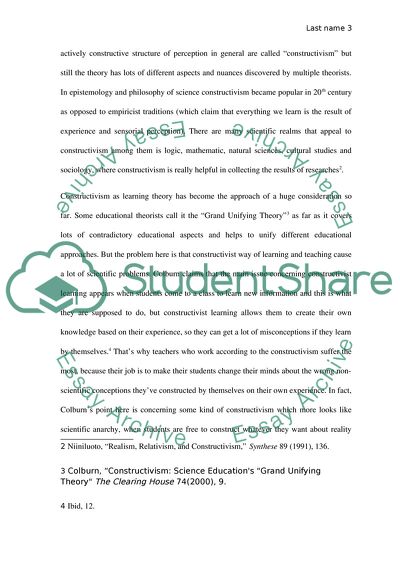Cite this document
(Constructivism on Teaching and Learning Science Essay Example | Topics and Well Written Essays - 1250 words, n.d.)
Constructivism on Teaching and Learning Science Essay Example | Topics and Well Written Essays - 1250 words. https://studentshare.org/education/1839629-constructivism-on-teaching-and-learning-science
Constructivism on Teaching and Learning Science Essay Example | Topics and Well Written Essays - 1250 words. https://studentshare.org/education/1839629-constructivism-on-teaching-and-learning-science
(Constructivism on Teaching and Learning Science Essay Example | Topics and Well Written Essays - 1250 Words)
Constructivism on Teaching and Learning Science Essay Example | Topics and Well Written Essays - 1250 Words. https://studentshare.org/education/1839629-constructivism-on-teaching-and-learning-science.
Constructivism on Teaching and Learning Science Essay Example | Topics and Well Written Essays - 1250 Words. https://studentshare.org/education/1839629-constructivism-on-teaching-and-learning-science.
“Constructivism on Teaching and Learning Science Essay Example | Topics and Well Written Essays - 1250 Words”. https://studentshare.org/education/1839629-constructivism-on-teaching-and-learning-science.


